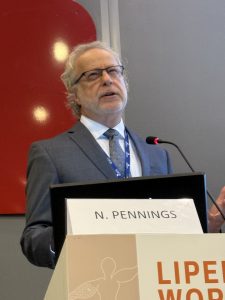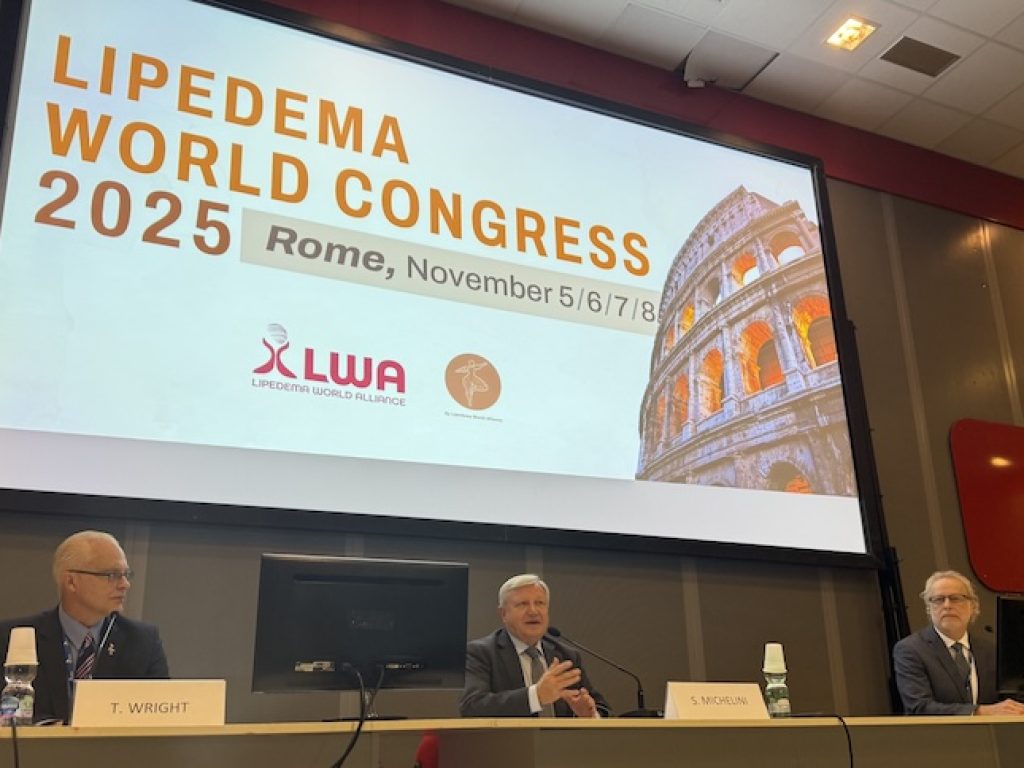Dr. Nicholas Pennings recently represented the Campbell University medical school in front of a global audience during a gathering of physicians and healthcare providers in Rome.
Pennings was a featured speaker at the 2025 Lipedema World Congress, held in the Italian capital Nov. 5-8.
Pennings continues as a professor of Family Medicine at Jerry M. Wallace School of Osteopathic Medicine and is former medical director of the University’s Health Center, where he offers virtual office hours one day each week.
 Some 800 healthcare professionals attended the Congress, which, according to its website, “represents a unique and prestigious gathering of leading experts and healthcare professionals from diverse disciplines, uniting lymphologists, plastic surgeons, angiologists, phlebologists, nutritionists, dermatologists, physical therapists, bariatric and metabolic specialists and radiologists.
Some 800 healthcare professionals attended the Congress, which, according to its website, “represents a unique and prestigious gathering of leading experts and healthcare professionals from diverse disciplines, uniting lymphologists, plastic surgeons, angiologists, phlebologists, nutritionists, dermatologists, physical therapists, bariatric and metabolic specialists and radiologists.
The Congress welcomes representatives from patient associations worldwide, fostering a truly multidisciplinary exchange of knowledge and expertise at the highest international level, the site says.
Pennings is also executive director of Clinical Education for the national Obesity Medicine Association.
He’s passionate about his research into this chronic and dangerous disease. For instance, his research into obesity focuses, in part, on the relationship between endogenous insulin production and weight gain, in addition to the effect of intensive lifestyle changes on health improvement.
Pennings’s talk in Rome touched on GLP-1 receptor agonists of Lipedema, a condition, he says, that women develop resulting in marked excess body fat deposition in the hips and buttocks and legs.
“That body fat is often very tender, it bruises easily and very resistant to any kind of dietary intervention,” he says.
The condition seems to be genetic, Pennings adds.
Commonly distributed under brands such as Ozempic and Wegovy, GLP-1 helps patients lose weight but also seems to decrease inflammation occurring in their legs, which is causing the pain, Pennings says.
“Many women will say that their legs feel much better on the medications,” Pennings says. “Even if they don’t decrease in size a lot, they don’t feel as heavy or as swollen or as tender.”
Pennings also spent a few days during the trip sightseeing around Italy, including trips to Vatican City and Pompei.
“It was a great honor to be one of the keynote speakers at the Lipedema World Congress in Rome,” he wrote on LinkedIn. “It is very exciting to see all of the research that is going on in this poorly recognized chronic condition.”

